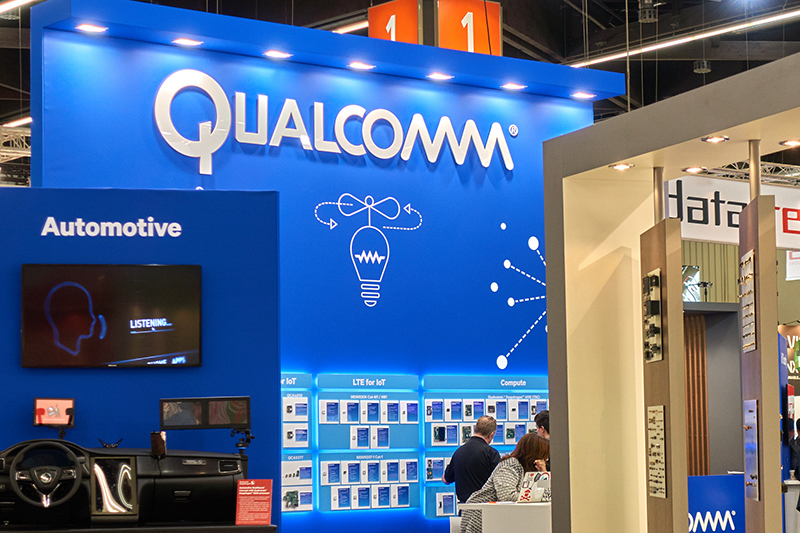 INFRA
INFRA
 INFRA
INFRA
 INFRA
INFRA
The ongoing legal battles between Qualcomm Technologies Inc. and Apple Inc. just got nastier, as Qualcomm is now pushing to have iPhones banned from being sold or manufactured in China, Bloomberg reported Friday.
Qualcomm accused Apple of patent infringement in the lawsuit, which was filed in Beijing Sept. 29 but not yet made public by the court. “Apple employs technologies invented by Qualcomm without paying for them,” a Qualcomm spokesperson said. If Qualcomm’s lawsuit is successful, it could deal a serious blow to Apple, which has made major strides in the Chinese market in recent years as the country has relaxed restrictions on foreign goods.
The lawsuit is based on three non-standards-essential patents for technologies used in iPhones, which includes power management and some of the iPhone’s touch screen technology. But the full details of the new lawsuit are still unknown.
The new lawsuit is the latest development in an ongoing legal spat between Apple and Qualcomm that has been running for nearly a year. In January, Apple hit Qualcomm with a massive $1 billion lawsuit, accusing the company of charging excessive royalty fees for mobile technologies that Qualcomm has “nothing to do with.”
“Qualcomm built its business on older, legacy standards but reinforces its dominance through exclusionary tactics and excessive royalties,” an Apple spokesperson said at the time. “Despite being just one of over a dozen companies who contributed to basic cellular standards, Qualcomm insists on charging Apple at least five times more in payments than all the other cellular patent licensors we have agreements with combined.”
Apple’s lawsuit came just days after the U.S. Federal Trade Commission filed its own lawsuit against Qualcomm strong-arming smartphone makers into unfair licensing deals by using its patents to block companies from using chips from competitors. “These royalties amount to a tax on the manufacturers’ use of baseband processors manufactured by Qualcomm’s competitors – a tax that excludes these competitors and harms competition,” the FTC said.
For its part, Qualcomm has called Apple’s accusations “baseless” and said the FTC’s lawsuit is “based on a flawed legal theory.”
The attempt to ban iPhones in China is one of several tactics Qualcomm has taken against Apple in the months since Apple filed its lawsuit. In July, Qualcomm also asked the U.S. International Trade Commission to ban the import of iOS devices in the U.S., cutting Apple off from its suppliers. And it asked the ITC to ban the marketing and distribution of those products. If successful, the ban would affect only certain iPhone models, because some providers use Intel chips in the devices rather than Qualcomm’s chips, but it would affect a sizable portion of the U.S. iPhone supply.
Over the last few months, Qualcomm has had to contend with more than Apple and the FTC. Most recently, Qualcomm was hit with a $774 million fine by Taiwan’s trade commission, which also accused the company of abusing its position to secure unfair licensing deals.
THANK YOU